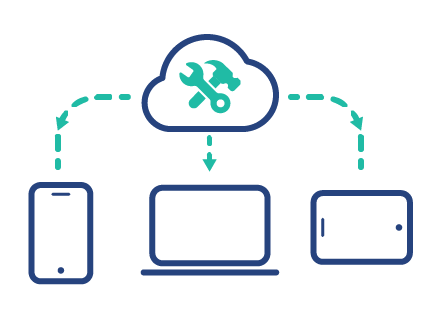

Get to know your customer base like never before with CLM Personal Marketing Microservices. Every customer is unique and the age of "one size fits all" mass marketing has come and gone. From Retail, Oil & Gas, Travel, to Finance and Telecommunications companies – your customers are smarter today than ever before. This cutting-edge microservice allows you to speak to your base on an intimate level with hyper-personalized offers and promotions for all CLM loyalty program members.
Suggest relevant products to customers based on their intended purchases and boost recurring revenue. Frequent pattern mining allows AI-boosted shopping cart analysis which can detect which products are often purchased together in a single transaction. Based on historical data, individual product recommendations for new transactions are generated in real-time, ensuring that each customer’s experience is tailored to their particular preferences. With this FPM, you now have the power to implement smart features such as the popular “other customers also bought” section in member portals, mobile apps, and e-commerce websites.
Large enterprises can have millions of active loyalty members engaging with their program. In this vast landscape, it can be difficult to determine which customers deserve the most of your attention. CLV is a fully customizable formula that analyzes the Recency, Frequency, and Monetary value of an individual member. This highly valuable data gives you the insights to your most valued customers – enabling smart, strategic decision making.
Optimize your marketing efforts by understanding which products your customers purchase and exactly when they purchase them. Detection of cyclical recurring purchases of specific products made by selected customers unlock key insights into the timing of future purchases. This allows for personalized communication with customers at the exact right moment.
Thanks to the continuous analysis of patterns in customer interactions, it is possible to identify members that are most likely to:

Personalized marketing techniques are proven methods to improve your bottom line. A variety of studies have proved that applying these techniques results in increased conversion rates and boosted revenues by saving resources usually spent on mass offers with a low consumption ratio.




Multiple models in Personal Marketing Microservice use deep neural networks as part of their architecture. DNNs can process high volumes of data and adapt their calculations depending on the training datasets they receive. The same model can be re-used at a member level, as it can adapt to the input data without any additional manual corrections.
One of the more exciting Machine Learning techniques is a method initially developed for Natural Language Processing [NLP]. Its goal is to detect the latent meaning of a word by analyzing other words that are frequently used in close association or similar context. From the marketing perspective, this approach allows the program to recognize related products by examining what items are commonly purchased together. By and large, it relies on the assumption that if products A and B are purchased with products C, D and E, then it is highly probable that there is some relation between those products – whether it be that they belong to the same category or are purchased by similar customers.
Deep Collaborative Filtering assumes that customers with a similar purchase history are likely to purchase similar products in the future. This straightforward idea powers a vast majority of commercially used recommender systems.
DTW is a technique used to assess distance and similarity between two different temporal sequences or time-series, which may vary in speed or frequency. In PMM, it is one of the methods used for pattern identification and detection for both supervised and unsupervised learning approaches.
Association rule mining is a category of Machine Learning techniques that is used to identify relations between variables in huge datasets. Frequent Pattern Mining within Personal Marketing Microservice utilizes the FP-Growth and Apriori association rule mining algorithms to detect sets of products frequently purchased together in a single transaction. FPM also follows the continuous learning approach, meaning that the model keeps evolving over time and adapts to new transactions coming through a wide range of supported data streams.

Tell us about your business needs. We will find the perfect product.




















